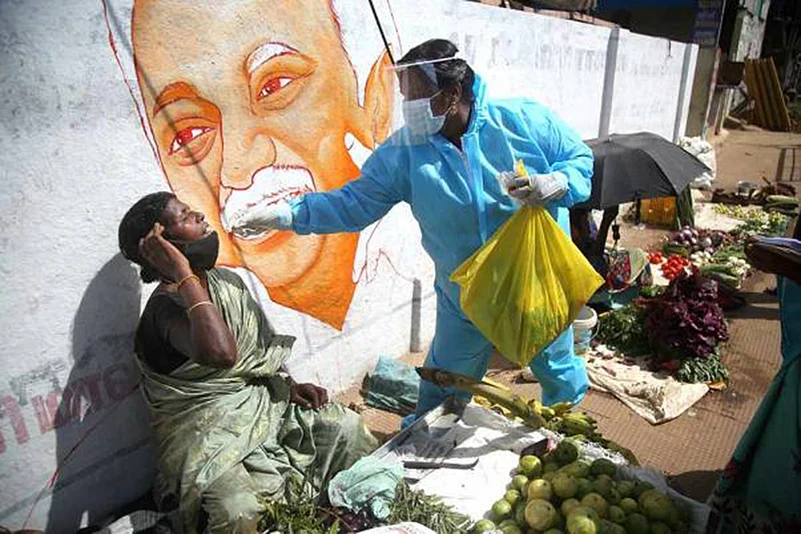The second Covid wave left behind a trail of death in India. While the wave has ebbed in most parts of the country, with the daily rise in the number of coronavirus infections showing a drastic decrease, it still continues to impact India’s cumulative Covid caseload.
For instance, a leading private hospital in Delhi reported on Friday said that the number of cases of long-term Covid-19 reported in the wake of the second wave of the coronavirus pandemic is four times the corresponding figures recorded last year.
But what’s long Covid?
Long Covid is a condition where people who have recovered from the infection are still exhibiting symptoms far longer than usually expected. Such patients, who are known as "long haul Covid cases", continue to experience symptoms of the disease, four weeks post the initial recovery.
What are the initial symptoms of Long Covid?
People who exhibit over five symptoms of SARS-CoV-2 infection in the first week are more likely to develop long COVID, irrespective of their age or gender, according to a review of studies. The review, published in the Journal of the Royal Society of Medicine (JRSM) on Thursday, summarised current research on symptom prevalence, complications and management of long COVID. In long COVID, patients experience prolonged symptoms extending sometimes for months.
What are the ten most common symptoms of long Covid?
A group of researchers from the University of Birmingham in the UK noted that pooled prevalence data in the review highlights the ten most common symptoms of long COVID.
These are fatigue, shortness of breath, muscle pain, cough, headache, joint pain, chest pain, altered smell, diarrhoea and altered taste, they said.
The researchers identified two main symptom clusters of long COVID: those comprising exclusively of fatigue, headache and upper respiratory complaints, and those with multi-system complaints including ongoing fever and gastroenterological symptoms.
"There is evidence that the impact of acute Covid-19 on patients, regardless of severity, extends beyond hospitalisation in the most severe cases, to ongoing impaired quality of life, mental health and employment issues," said study lead author Olalekan Lee Aiyegbusi, from the University of Birmingham.
"People living with long COVID generally feel abandoned and dismissed by healthcare providers and receive limited or conflicting advice," Aiyegbusi said.
More than one-third of the patients in one of the studies included in the review reported they still felt ill or in a worse clinical condition at eight weeks than at the onset of Covid-19.
The researchers noted that neither the biological or immunological mechanisms of long COVID, nor the rationale for why certain people are more susceptible to these effects, are yet clear, limiting development of therapies.
"It is essential we act quickly to address these issues," said Shamil Haroon, co-principal investigator of the study from University of Birmingham.
In a comparison with other coronaviruses, the researchers suggest that in the longer term, patients with long COVID may also experience a similar disease trajectory to that of patients who had SARS or MERS.
They point to analysis showing that six months after hospital discharge, approximately 25 per cent of patients hospitalised with SARS and MERS had reduced lung function and exercise capacity.
"The wide range of potential symptoms and complications patients with long COVID may experience highlights the need for a deeper understanding of the clinical course of the condition," said study's co-principal investigator Melanie Calvert, a professor at the University of Birmingham.
"There is an urgent need for better, more integrated care models to support and manage patients with long COVID to improve clinical outcomes," Calvert added.
(With PTI inputs)


























